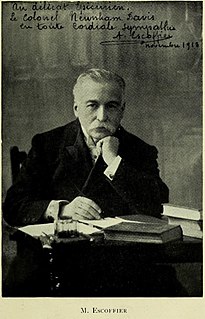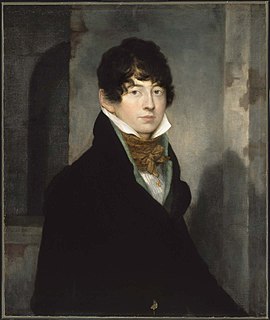A Quote by Denis Diderot
You can be sure that a painter reveals himself in his work as much as and more than a writer does in his.
Related Quotes
The writer walks out of his workroom in a daze. He wants a drink. He needs it. It happens to be a fact that nearly every writer of fiction in the world drinks more whisky than is good for him. He does it to give himself faith hope and courage. A person is a fool to become a writer. His only compensation is absolute freedom. He has no master except his own soul and that I am sure is why he does it.
The fact that labour is external to the worker, i.e., it does not belong to his intrinsic nature; that in his work, therefore he does not affirm himself but denies himself, does not feel content but unhappy, does not develop freely his physical and mental energy but mortifies his body and his mind. The worker therefore only feels himself outside his work, and in his work feels outside himself.
If the artist does not fling himself, without reflecting, into his work, as Curtis flung himself into the yawning gulf, as the soldier flings himself into the enemy's trenches, and if, once in this crater, he does not work like a miner on whom the walls of his gallery have fallen in; if he contemplates difficulties instead of overcoming them one by one ... he is simply looking on at the suicide of his own talent.
The man who works recognizes his own product in the world that has actually been transformed by his work. He recognizes himself in it, he sees his own human reality in it he discovers and reveals to others the objective reality of his humanity of the originally abstract and purely subjective idea he has of himself
The importance of the romantic element does not rest upon conjecture. Pleasing testimonies abound. Hannah More traced her earliest impressions of virtue to works of fiction; and Adam Clarke gives a list of tales that won his boyish admiration. Books of entertainment led him to believe in a spiritual world; and he felt sure of having been a coward, but for romances. He declared that he had learned more of his duty to God, his neighbor and himself from Robinson Crusoe than from all the books, except the Bible, that were known to his youth.
Good work is no done by "humble" men. It is one of the first duties of a professor, for example, in any subject, to exaggerate a little both the importance of his subject and his own importance in it. A man who is always asking "Is what I do worth while?" and "Am I the right person to do it?" will always be ineffective himself and a discouragement to others. He must shut his eyes a little and think a little more of his subject and himself than they deserve. This is not too difficult: it is harder not to make his subject and himself ridiculous by shutting his eyes too tightly.
The genius of a composer is found in the notes of his music; but analyzing the notes will not reveal his genius. The poet's greatness is contained in his words; yet the study of his words will not disclose his inspiration. God reveals himself in creation; but scrutinize creation as minutely as you wish, you will not find God, any more than you will find the soul through careful examination of your body.
Man offers himself to God. He stands before Him like the canvas before the painter or the marble before the sculptor. At the same time he asks for His grace, expresses his needs and those of his brothers in suffering. Such a type of prayer demands complete renovation. The modest, the ignorant, and the poor are more capable of this self-denial than the rich and the intellectual.



































